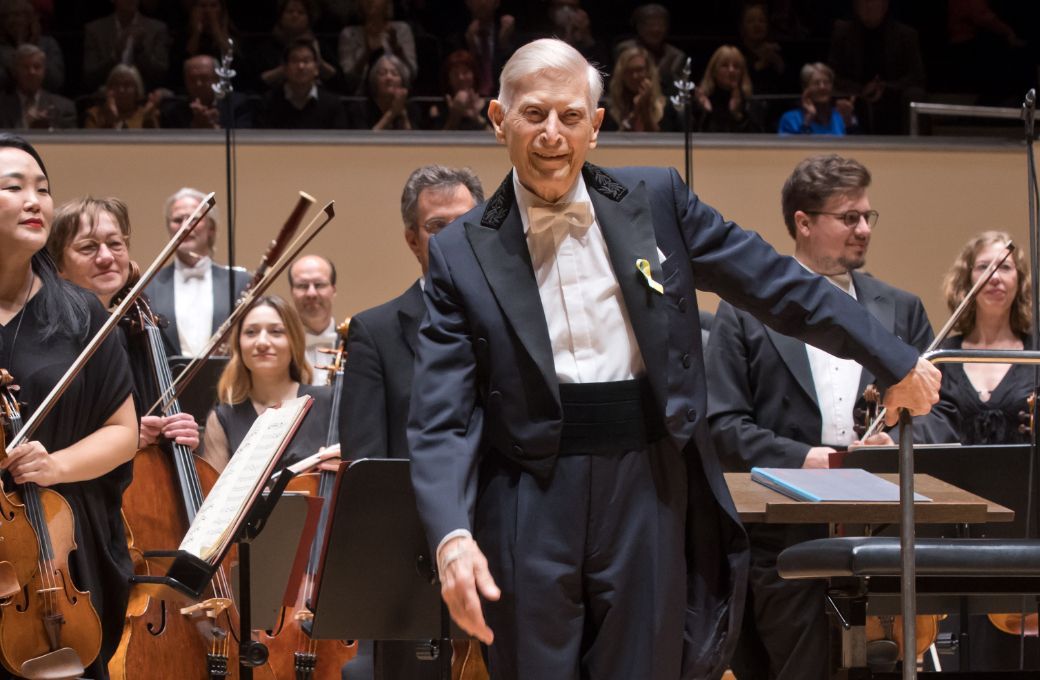‘Twas a time for honours. At the first of three consecutive concerts with “his” Gewandhaus Orchestra (he was their Music Director from 1998 to 2005 and is currently their Honorary Conductor), Herbert Blomstedt was awarded the Grand Cross of Merit of the Federal Republic of Germany with a Star – this distinction is important, as he had already been awarded the regular one (without the star) in 2003. But Blomstedt cares little for political pomp. After the ceremony and a charming, very short, acknowledgement, he waved his hand as if to say, “Now let’s get on with the important things – let’s make music!”

On the programme were symphonies by two of Blomstedt’s favourite composers, Franz Schubert and Franz Berwald. Born in Austria (1797) and Sweden (1796) respectively, they were children of their era and yet so very different, even though they shared a given name.
Blomstedt conducted on Schubert's Symphony no. 3 in D major, a work of youthful freshness written at the age of 18. It came across as a work full of musical joy, light and buoyant, dance-like and carefree. Blomstedt has long preferred the so-called German orchestral order, in which first and second violins sit opposite each other. This promotes the sense of a brisk change of themes without the orchestra ever seeming rushed. Solo clarinet, flute and oboe were especially present with seductive lightness.
In the second half of the evening, Blomstedt chose his compatriot Berwald’s Symphony no. 4 in E flat major, referred to as the “Naïve” by Berwald himself. Why remains a mystery other than maybe the feigned harmlessness of the Scherzo third movement and its minimalist, short Trio. Altogether, the symphonic language has more in common with Beethoven, whom Berwald admired, with light playing woodwinds and richly scored, almost floating brass.
Both Schubert and Berwald resemble each other in setting up a grand finale and announcing the end several times, adding yet another flourish until reaching a natural resolution. Schubert was a master at this; Berwald comes close.
The Gewandhaus Orchestra responded to Blomstedt every so subtly given indication. As is his trademark, he did not use a baton, giving the impression of caressing the orchestra, being lavishly economical in coaxing every nuance with a nonchalant-looking wave or – at most – a raised forefinger.
It almost goes without saying that there was a standing ovation at the end of the concert, with warm applause not only for the former boss, who took his bows swivelling round on his chair toward this loyal and fiercely adoring audience, but also for every single group of players who so endearingly and lovingly gave of themselves. And that is surely worth incomparably more than all the splendour of a medal... with or without a star.


